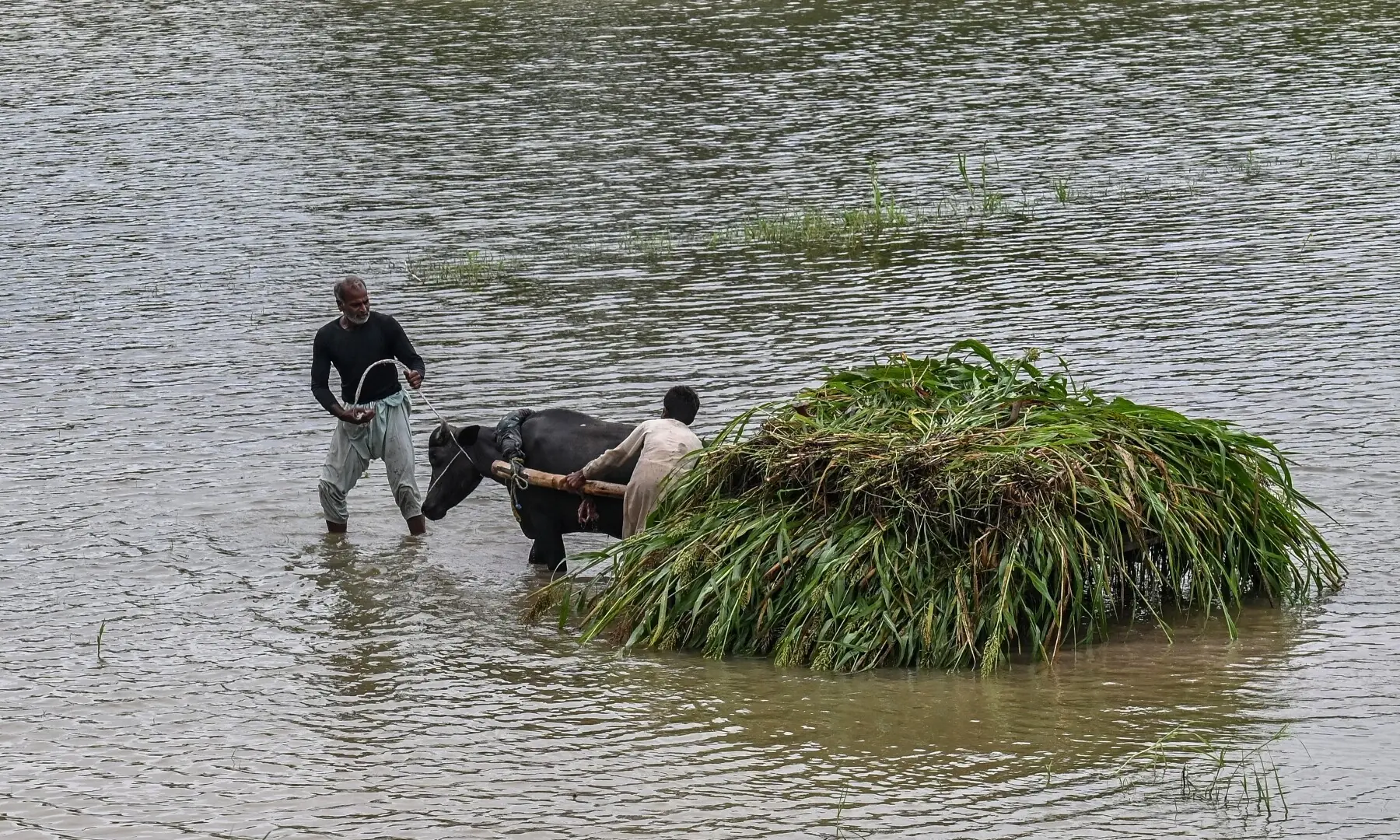Northern areas are reeling from devastating climate-induced flash floods that killed hundreds earlier this month, destroying homes, infrastructure and livelihoods in scenes many compared to the catastrophic 2022 deluges.
Pakistan ranks among the world’s 10 most climate-vulnerable countries, despite contributing less than 1 per cent of global greenhouse gas emissions.
Experts warn that such floods and other calamities are no longer “rare disasters” and are becoming routine shocks in a country ill-prepared to withstand them.
The focus, according to these experts, must now be on adaptation, not emissions cuts.
“Floods are no longer rare disasters in Pakistan. They are becoming routine shocks that people brace for every monsoon. Calling them the ‘new normal’ is not an exaggeration,” said Karachi-based ecologist Rafi-ul-Haq.
Since mid-August, torrential rains, flash floods and cloudbursts have killed more than 460 people across the country, including in Azad Jammu and Kashmir and the Gilgit-Baltistan region.
Khyber Pakhtunkhwa has been the worst-hit, where swollen rivers, mudslides and collapsing homes have buried entire families. Nationwide, almost 800 people have died in rain-triggered floods and landslides since late June.
Haq said the intensity of rains and floods is accelerating due to climate change, global warming and melting glaciers. But human actions — unplanned urbanisation, deforestation, blocked waterways, lax governance and weak emergency responses — account for as much as 60pc of the destruction.
“Pakistan cannot stop the rain, but it can prevent much of the suffering by fixing manmade vulnerabilities,” he said. “Floods will happen, but disasters don’t have to.”
Ahmed Kamal, an Islamabad-based flood management expert, described the current flooding as a “new normal”. Shifting monsoon patterns, he said, have intensified rainfall and created new hotspots of devastation.
The Gilgit-Baltistan region, home to towering glaciers, has experienced alarming changes. Temperatures have risen steadily, accelerating glacier melt and causing glacial lake outburst floods. In May, Chilas district recorded an unprecedented 49°C (120F).
“We have our glaciers melting very fast, while winters are shrinking,” Kamal said. “Snowfall was almost 50pc below average last year.”
He also pointed out the dangers of intensifying cyclone threats in Pakistan, saying that rising sea surface temperatures in the Arabian Sea have shifted storm activity westward, with cyclones increasingly striking the coast since 2007.
At the same time, decades of deforestation — driven by demand for farmland and housing — have stripped the country of natural flood buffers. “This has multiplied the frequency and intensity of floods,” Kamal said.
Adaptation, resilience, and governance
Experts argue that Pakistan must focus on building resilience through a mix of natural and structural solutions.
“Given its economic limits, Pakistan’s priority must be adaptation and resilience rather than emissions cuts,” Haq said.
He called for restoring wetlands, mangroves and floodplains to absorb excess water, clearing illegal construction from drainage channels, and upgrading city drainage systems with green infrastructure.
He also emphasised the need for flood-resilient farming backed by insurance and social safety nets. “Low-cost steps like pre-monsoon drain cleaning, early warning systems, and community shelters can save lives immediately,” he said, while also stressing the need to address weak land-use planning and corruption.
Prime Minister Shehbaz Sharif has acknowledged that “criminal negligence” by successive governments had allowed construction on riverbeds and watersheds. At a cabinet meeting last week, he vowed to clear these encroachments.
“Along with this, larger investments in watershed management and resilient housing can follow with international climate finance,” said Kamal.
Climate governance expert Imran Saqib Khalid warned that unless Pakistan takes quick action, the future could bring food insecurity, water shortages and mass migration. “Science shows that if we continue on this trajectory, by the end of the century we’ll reach close to 2.5°C warming, which will cause havoc,” he said.
Khalid also argued that Islamabad must join forces with other low-emitting nations to demand fairer global action and finance.
Kamal concluded on an optimistic note, saying: “The challenge is enormous, but the window of opportunity is still there. With scientifically smart adaptation strategies, we could at least mitigate much of the devastation.”
